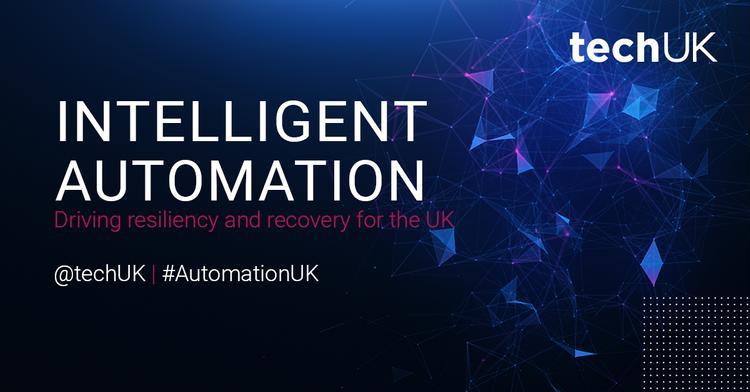How intelligent automation is helping to create the next generation of financial services
Globant for techUK's Intelligent Automation Week #AutomationUK

Financial Institutions operate in perhaps the single most regulated sector on the planet, with some institutions spending as much as 10% of their operating costs on compliance related functions at one stage. Rising operating expenses, compounded by regulatory fines along with increasing regulatory requirements have acted as a drag on performance and also in delivering sub optimal client experiences.
In order to solve this, and other problems, leading financial institutions today rely extensively on automation - with benefits ranging from significantly increased efficiency to fewer errors and lower operational risk profiles. But why is there now a move towards both hyper-automation and intelligent automation?
While Financial Institutions have accepted the need to drive automation and have begun to adopt automation technologies - ranging from simple rules based automation bots through to more advanced intelligent automation which are leveraging cognitive technology and machine learning capabilities.
The challenge now, is on enabling the flexibility and nimbleness that Institutions need in today’s rapidly changing world. This stark reality was made visible during the onset of the Covid-19 pandemic. Almost from one day to the next, financial services organisations could no longer accept their existing pace of change. More than a third of customers increased their usage of online banking during this time. Mastercard reported more than 40% growth in contactless transactions globally during the first quarter of 2020. Internally, firms struggled to ensure that their infrastructure was capable of supporting mass homeworking, with remote working and collaborative technologies taking their place in the lexicon of common usage.
This created two major challenges for financial services firms related to automation: 1) How could they adapt existing processes, software, and ultimately customer journeys to the new demands and requirements of customers in the “new normal”? And 2) How could they rapidly extend and improve their use of automation, to provide more personalized, seamless, and enjoyable customer experiences?
It’s of little surprise therefore that the research company, Gartner, in their 2021 CIO survey, found that 49% of banking and investment CIOs, and 44% of insurance CIOs plan to increase their investments in automation this year.
RPA is already key to financial services organisations
Robotic process automation (RPA) presents major opportunities for banks, insurance companies and other financial institutions to reduce task handling times, automate end-to-end processes and improve time to market for new products and services. For example, here at Globant we worked with one financial services institution to develop tools to improve how they responded to potential fraud and money laundering - significantly improving what is a complex process involving a lot of different applications, and prone to a high degree of human-error.
For these reasons, it has become one of the fastest growing areas of enterprise investment in recent years. According to Gartner, even with the economic pressures resulting from the Covid-19 pandemic, the RPA market is expected to grow at double-digit rates through 2024. And already 80% of financial leaders have implemented, or are planning to implement, RPA.
Adopting RPA is often the first step for enterprises in their adoption of automation and AI. Indeed, RPA typically provides both the motivation, and the means, to kick-start an enterprise's AI journey.
The emergence of intelligent automation
Added to the potential of the first generation of RPA deployments, there are an emerging set of new technologies that combine process redesign with automation and machine learning. This is what we’re increasingly referring to as intelligent automation. These next-generation tools can radically improve everything from how financial services organisations handle routine processes to transforming customer experiences. However, despite their high potential, they clearly need to be part of wider business strategy transformation.
This is what it means to be a “digital organisation” - bringing together various technologies, using automation, to build powerful experiences for every stakeholder of the enterprise, whether a customer or employee. And this is what will enable traditional financial services firms to successfully compete with digital native fintechs.
While the initial deployment may not appear overly complex, this can be deceptive. As research from Forrester has expressed: “Business struggle with RPA initiatives due to challenges around business case development, governance, organisation alignment, and the lack of cultural framework for managing automation”. In our client experience, this is even more the case with hyperautomation and intelligent automation, where it’s not just individual tasks which are being automated, but rather entire processes - this dramatically increases the level of complexity.
It’s clear that financial institutions that do not fully embrace digital transformation, and adapt to new market requirements will lose market share to new players and be left behind. Moving towards both hyperautomation and intelligent automation will help build your digital transformation roadmap and will guide you on your next steps toward embracing the digital future of financial services.
You can read all insights from techUK's Intelligent Automation Week here

Rory Daniels
Rory joined techUK in June 2023 after three years in the Civil Service on its Fast Stream leadership development programme.

Laura Foster
Laura is techUK’s Associate Director for Technology and Innovation.

Elis Thomas
Elis joined techUK in December 2023 as a Programme Manager for Tech and Innovation, focusing on AI, Semiconductors and Digital ID.







